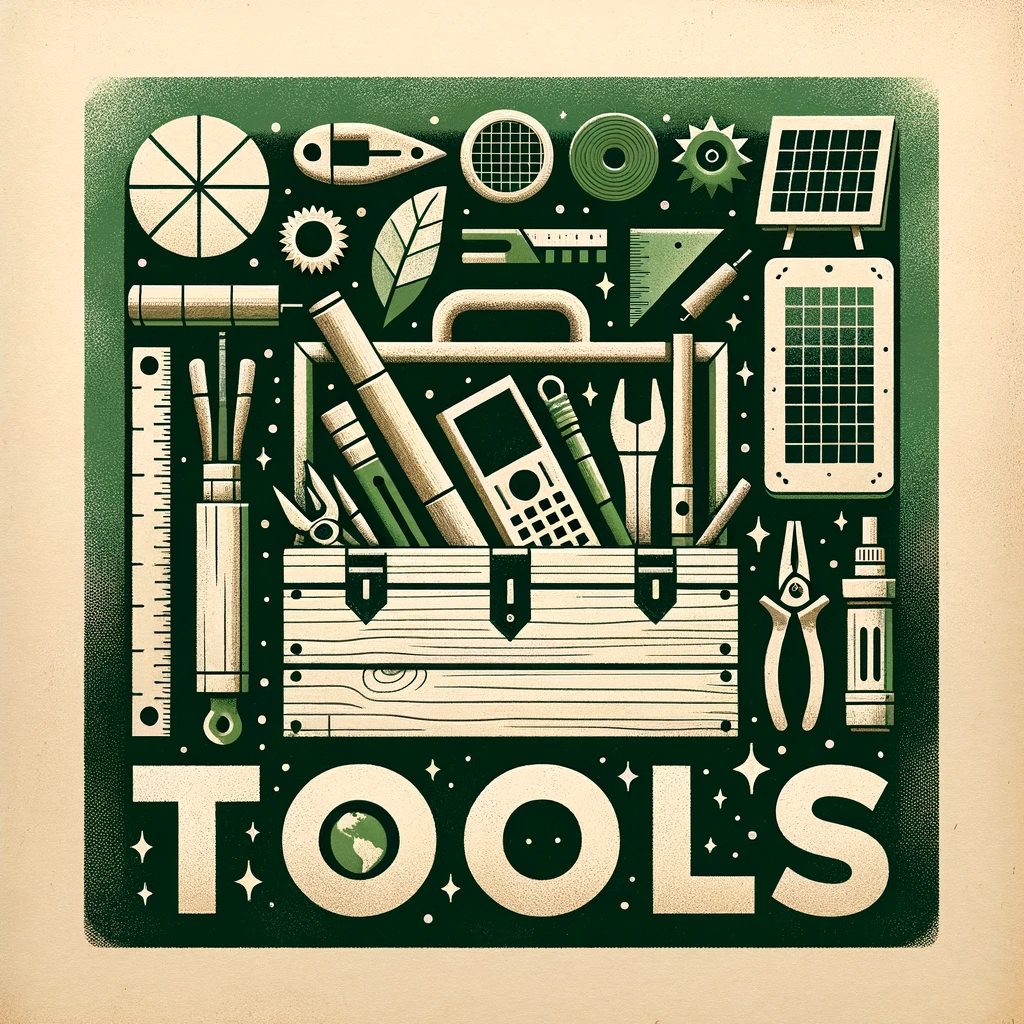While many envision a sustainable life as one filled with eco-friendly products, true sustainability stretches far beyond the material. Real change arises from a fusion of knowledge, practices, digital tools, and community initiatives. Let’s delve into these non-material eco tools that can be catalysts for a greener lifestyle.
1. Knowledge is Power
Understanding the environmental challenges we face is foundational to effecting change. This encompasses:
- Educational Platforms: Websites like Coursera or Khan Academy offer courses on climate change, waste reduction, and more.
- Documentaries: Films like “An Inconvenient Truth” or “Before the Flood” provide deep insights into environmental issues.
2. Digital Enablers
The digital age has gifted us tools that facilitate sustainable living:
- Carbon Calculators: Track your carbon footprint and identify areas for reduction.
- Sustainable Living Blogs & Forums: Websites like TreeHugger or the Zero Waste Subreddit provide a community of like-minded individuals sharing tips and experiences.
3. Community Engagement
There’s strength in numbers. Leveraging collective efforts can create significant impact:
- Local Environmental Groups: Engage in community-based initiatives such as tree planting or beach clean-ups.
- Workshops: Attend (or organize) workshops on sustainable gardening, composting, or other green practices.
4. Mindful Consumption
Being a conscious consumer doesn’t just relate to products. It encompasses:
- Dietary Choices: Reducing meat consumption or supporting local organic farmers can decrease carbon footprints.
- Digital Minimalism: Limiting digital consumption reduces energy use. This includes unsubscribing from unnecessary emails or limiting streaming services.
5. Skill Development
Sustainable living often intersects with DIY:
- Upcycling Skills: One tool is to learn to transform waste materials into functional or artistic creations.
- Gardening: Even without products, understanding the basics of permaculture or composting can help cultivate a green thumb.
6. Advocacy & Policy Influence
Tools aren’t always tangible. Sometimes, they’re mechanisms of influence:
- Petitions & Campaigns: Platforms like Change.org allow for collective voices to be heard, driving change at a legislative level.
- Voting: Make your voice count by supporting policies or representatives championing sustainability.
7. Redefining Transportation
- Carpooling Networks: Platforms like BlaBlaCar or community bulletin boards can help find or organize carpools, reducing carbon footprints.
- Cycling Routes: Apps like Komoot can help map out cycling routes, promoting eco-friendly travel.
8. Mindfulness and Mental Well-being
A sustainable lifestyle is holistic:
- Meditation & Mindfulness: Apps like Headspace or simple practices can help cultivate a mindful approach to consumption and life.
- Ecotherapy: Engaging with nature, be it through walks, hikes, or gardening, benefits both the planet and mental well-being.
9. Financial Strategies
Economic sustainability is equally crucial:
- Ethical Investments: Platforms like Ethex or online resources can guide investments into eco-friendly businesses or ventures.
- Budgeting Tools: Digital tools or simple practices that prioritize sustainable spending habits.
10. Education for the Next Generation
The future rests in their hands:
- Eco Education: Introducing sustainability topics in school curriculums or through online platforms.
- Youth Groups: Encourage young ones to join groups like the Scouts, which often promote sustainable practices.
In conclusion, while eco-friendly products play a role in sustainable living, they’re merely a piece of the puzzle. By leveraging the intangible eco tools outlined above, from knowledge acquisition to community involvement, each individual can carve out a holistic, sustainable path, benefiting both the planet and its inhabitants.
